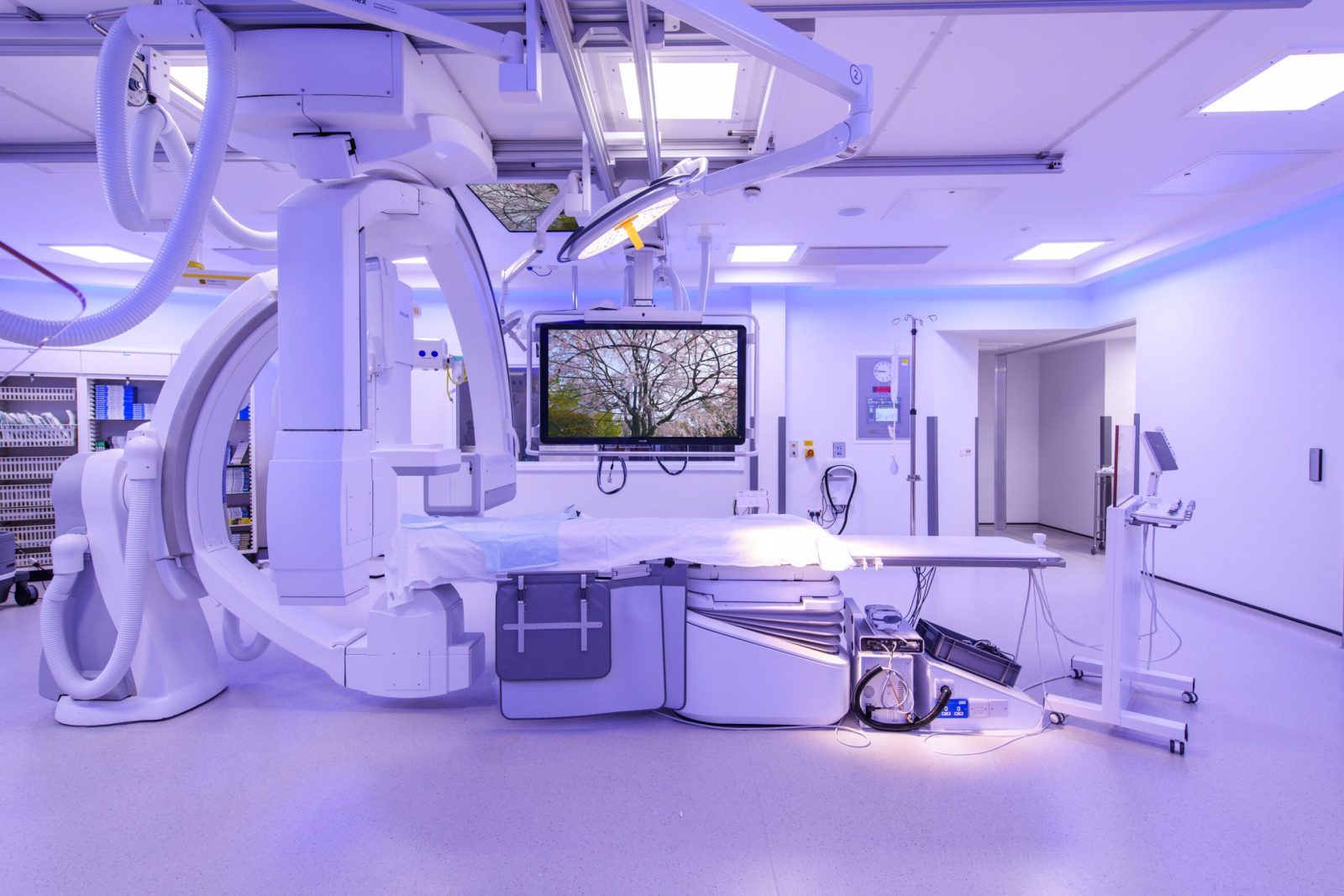Philips cardiology portfolio offers solutions for coronary artery disease, structural heart disease, arrhythmia, and heart failure. It integrates diagnostic and interventional imaging, treatment devices, and cardiac patient monitoring solutions at each point in the patient journey with the aim to improve clinical outcomes, patient and staff experiences, and care pathway effectiveness.
Cardiovascular disease continues to be the number one healthcare challenge globally and is one of the leading causes of death worldwide [1]. The costs associated with cardiovascular diseases are rising significantly, with an expected growth in cost of 101% by 2035 [2]. Worldwide, clinicians need to balance the delivery of high-quality care for a growing volume of complex patients with constantly improving departmental efficiency.
Adding to the strength and depth of its cardiology portfolio, at ACC.22 Philips is launching two major innovations. Philips Ultrasound Workspace, an industry-leading vendor-neutral echocardiography image analysis and reporting solution that can be accessed via the web, allows clinicians to create seamless diagnostic workflows from the ultrasound exam room to the reporting room and beyond. Philips also announced the global availability of a new Ambient Experience solution connecting to Philips Image Guided Therapy System – Azurion, which aims to reduce patient anxiety during interventional procedures. Ambient Experience with FlexVision display offers patients a calming multi-sensory experience while staff prepare them for their procedure.
Philips Ultrasound Workspace: Next generation echocardiography solution
Introducing the Philips Ambient Experience to interventional rooms
Debuting at ACC.22 is Ambient Experience with FlexVision display. It offers patients undergoing an interventional procedure a calming multi-sensory experience while staff prepare them for their procedure, prior to the display being used for the actual intervention. It also allows patients and interventional team members to adapt the room’s ambient lighting and sound to add to the overall feeling of calm, especially during the patient entry and preparation phases of procedures. Aimed at reducing patient anxiety during interventional procedures, Ambient Experience, leveraging the Azurion’s FlexVision display, has the potential to improve the patient and staff experience, positively impact outcomes, and enhance workflows and productivity.
At ACC, Philips will also spotlight the latest cardiovascular features to Enterprise Performance Analytics – Performance Bridge – giving cardiovascular service line managers access to near real-time data on departmental performance through easy-to-use interactive vendor-neutral dashboards.
With these newest enhancements, users now have access to critical metrics to support operational performance monitoring in a minimally invasive procedural setting such as the interventional suite, providing data on procedure volumes, room utilization, procedure duration and lab turnaround time. Users can also access key metrics designed to support operational performance monitoring in a non-invasive procedural setting such as cardiac imaging suites, most notably echocardiography, with access to data on procedure volumes, modality/machine utilization, study type counts and report turnaround time.
This newest release further demonstrates Philips’ commitment working closely together with healthcare providers to bring together the right combination of services and tools to measure and monitor key areas to help drive continuous improvement, optimized operations, enhanced workflow efficiencies and improved patient outcomes.
Also highlighted at ACC.22 is Philips Image-Guided Therapy System – Azurion, the company’s advanced image-guided therapy platform that supports providers in performing procedures easily and confidently with a unique user experience.
Philips is also showcasing its complete portfolio of ambulatory cardiac diagnostic and monitoring services, as well as stroke care solutions, that provide industry-leading data analysis and management to help make care delivery more comprehensive, accurate and efficient.
New late-breaking clinical session on CIED patient care
On Sunday, April 3 at 13:15-13:25 ET in Main Tent | Hall D, Sean Pokorney, M.D., Assistant Professor of Medicine at Duke University School of Medicine (USA) and member of the Duke Clinical Research Institute, will present on low rates of guideline-directed care associated with higher mortality in patients with infection of pacemakers and implantable cardioverter defibrillators. Philips supports physicians with Lead Management solutions through a broad portfolio of tools designed for safety and predictability, including both laser and mechanical lead extraction devices.
To connect with experts and learn more about the Philips cardiology solutions that strengthen clinical confidence and build efficiency throughout the care pathway stop by Philips booth #1121. For a full calendar of events, as well as general information about Philips’ presence at the show, visit www.philips.com/ACC. Visit the Philips Industry Hub to experience innovative cardiac solutions and follow the #ACC2022 conversation on @PhilipsLiveFrom throughout the event.
[1] European Cardiovascular Disease Statistics 2017.
[2] RTI International for the American Heart Association. Projections of Cardiovascular Disease Prevalence and Costs: 2015–2035.
[3] Remote access requires a secure VPN connection.
